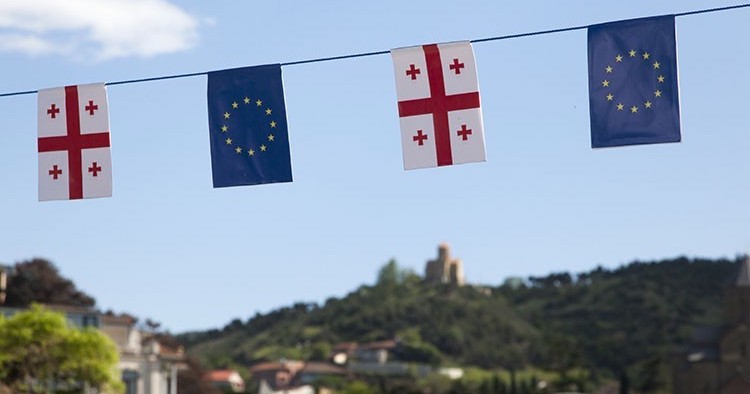Georgia continues to fulfil visa liberalisation benchmarks - European Commission Report

The national bodies’ efforts against corruption are also noted in the document, with the Georgian Parliament adopting legislation establishing the Anti-Corruption Bureau, an agency in charge of the development of anti-corruption policy and the monitoring of its implementation. Photo: Nino Alavidze/Agenda.ge
Georgia continues to fulfil visa liberalisation benchmarks and has taken action to address the European Commission’s previous recommendations, the sixth report of the Commission on the fulfilment of visa-free obligations by Eastern Partnership countries and the Balkan states said on Thursday.
The report noted that Georgia continued efforts to address the issue of “unfounded asylum applications” filed by its citizens in the EU member states, citing “exit-control checks” at the Georgian border crossing points.
The efforts made in the criminal prosecution of persons and groups involved in smuggling of migrants were also emphasised in the document, which said that Georgia “cooperates regularly” with EU member states on issues related to visa-free travel, including the prevention of irregular stay of Georgian citizens.
Georgia has regular cooperation with Frontex, [...] A number of Frontex officers are deployed to land and sea border crossing points as well as to Tbilisi and Kutaisi international airports. Georgian police officers have also been deployed to concerned EU Member States’ airports. The main purpose of this cooperation is to prevent the abuse of visa-free travel by Georgian citizens, including by lodging unfounded asylum applications”, the report read.
The national bodies’ efforts against corruption are also noted in the document, with the Georgian Parliament adopting legislation establishing the Anti-Corruption Bureau, an agency in charge of the development of anti-corruption policy and the monitoring of its implementation.
The report also said that Georgia had adopted the new National Counter-terrorism Strategy of 2022-2026 and its corresponding Action Plan in January 2022 in the fight against terrorism, adding the country’s State Security Service “continued actively” to cooperate with Europol, joining the Counter Terrorism Joint Liaison Team and participating in analytical projects, including Terrorist Finance Tracking Programme.
The Commission noted that Georgia “has not yet fully implemented the relevant Venice Commission recommendations”, outlined in the fifth report, adding the country “has not initiated the process of preparing legislation on additional integrity checks for Supreme Court judges with the participation of international experts with a casting vote”.
The report called for “further efforts” in aligning Georgia’s visa policy with the EU’s list of visa-required third countries, in “stepping up action” to address the issue of unfounded asylum applications and irregular stays in EU states.
The recommendations also included participation in the actions of the EMPACT Operational Action Plan on Migrant Smuggling, setting up an Asset Recovery Office and Asset Management Office, as well as adopting a new Anti-corruption strategy and Action plan and addressing the recommendations from the Venice Commission.
The report will be sent to the European Parliament and the European Council.
 Tweet
Tweet  Share
Share